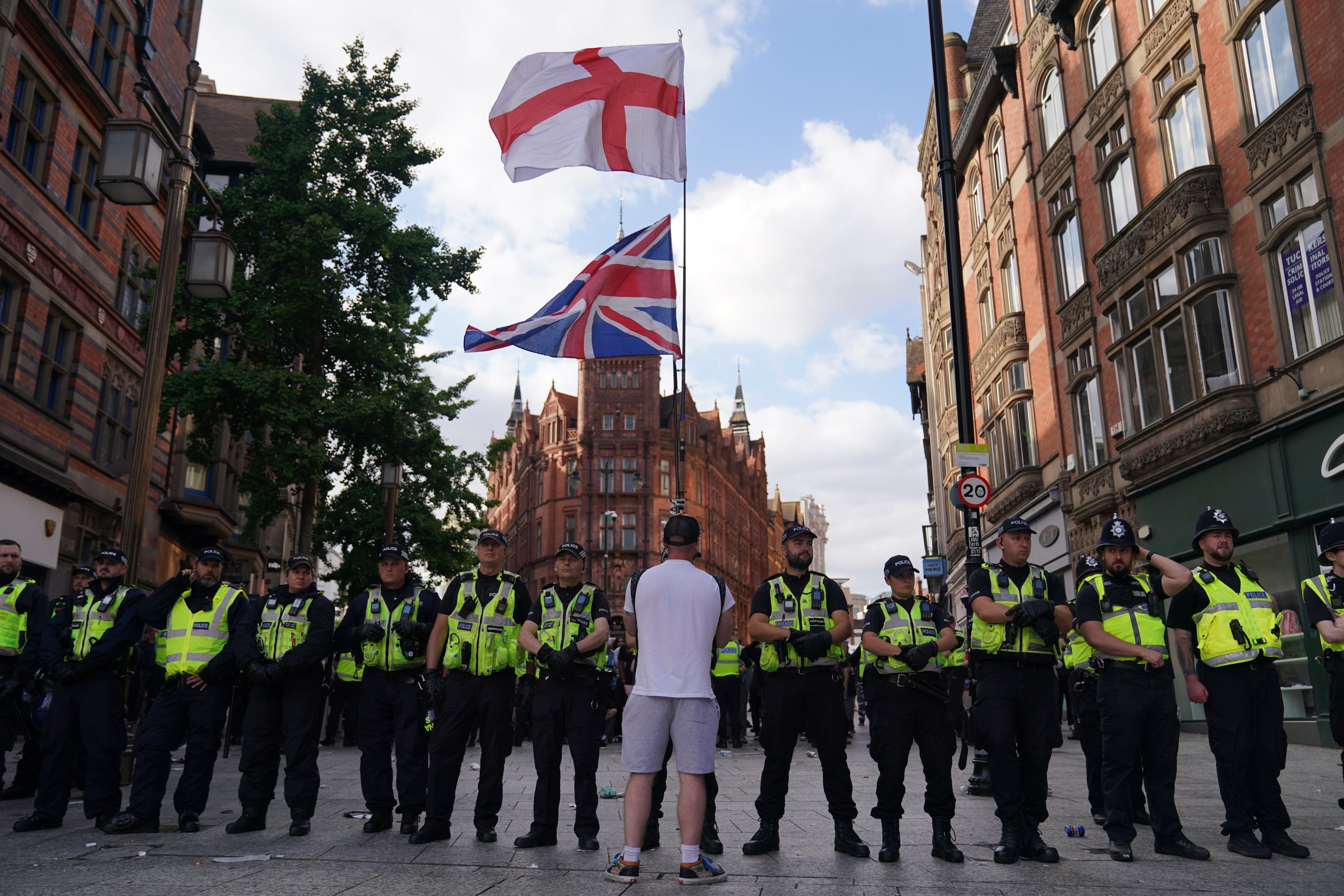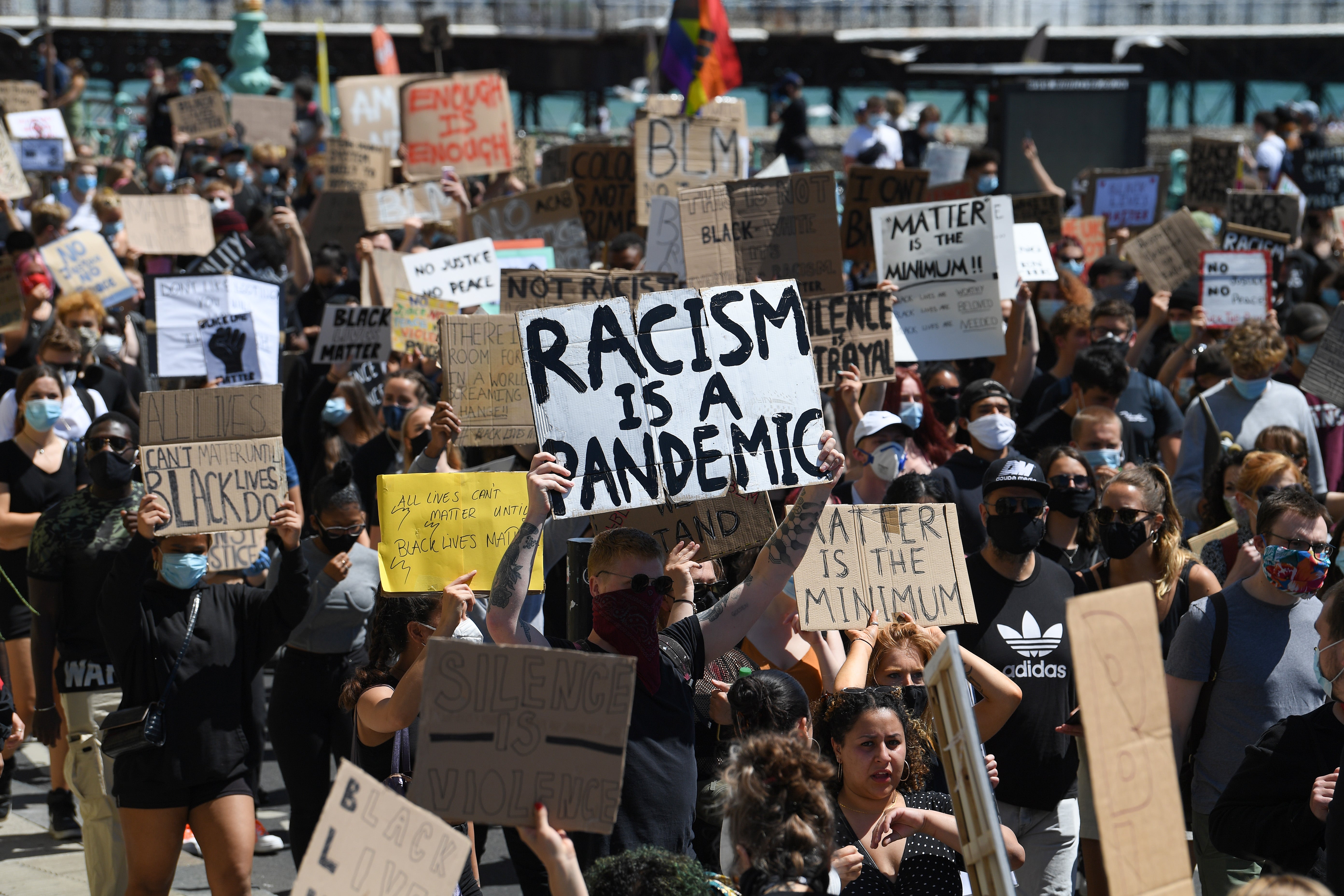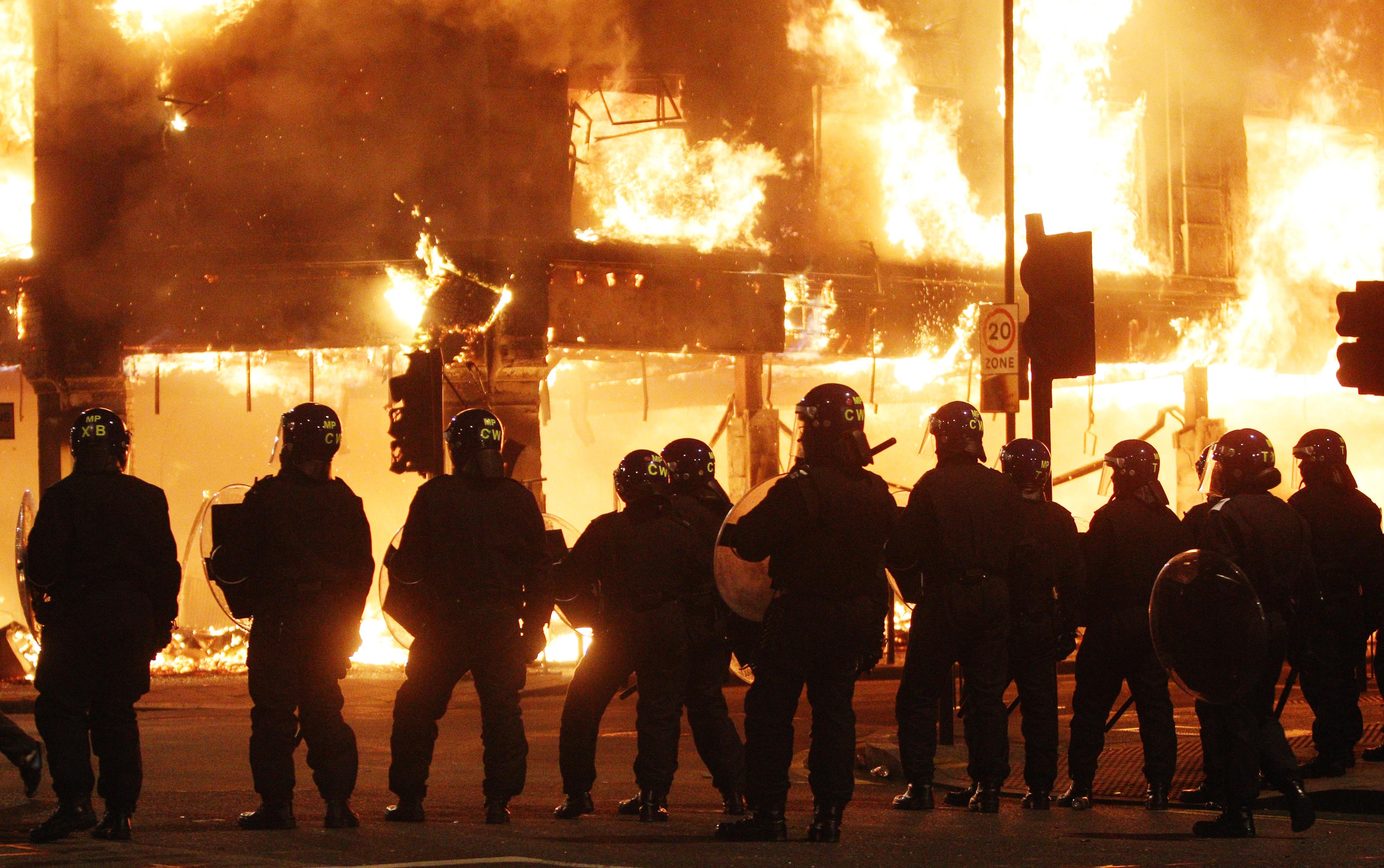What is ‘two-tier policing’? Nigel Farage and Elon Musk’s claims debunked as UK faces more riots
Critics and the far right have claimed previous protests - including those in 2011 after the fatal shooting of Mark Duggan and the Black Lives Matters demonstrations in 2020 - were policed ‘more favourably’ than racist demonstrations that have spanned the UK since murders in Southport
Keir Starmer has hit back at Nigel Farage after he accused police in the UK of carrying out ‘two-tier policing’ in their response to ongoing far-right riots.
Violent scenes have erupted in the last week following the killings of three young girls in Southport by 17-year-old Axel Rudakubana. Several others were injured in the attack, with the suspect due to stand trial in January.
Misinformation became rife following the tragic incident, with false reports of Rudakubana’s religion and migration status shared widely on social media. Far-right rioters took to the streets of Southport on the day after the attack, clashing with police and causing severe damage to the town.

This was followed by more than 20 similar events over the weekend. During and after the riots, police have arrested more than 400 people. Dozens of police officers have also been injured, with rioters often targeting them. A number of the far right protests have involved racist or Islamaphobic chants, with some participants seen making Nazi salutes, while black and Asian people have been attacked in broad daylight.
Responding to the police response to the disorder, Mr Farage said: “The impression of two-tier policing has become widespread”, adding: “The Prime Minister’s faltering attempts to address the current crisis have only added to that sense of injustice.”
The term ‘two-tier policing’, often spread by far-right conspiracists and now being peddled by Elon Musk on Twitter, refers to how police handle different groups in society. The baseless claim, often illustrated with cherry-picked incidents that ignore others, is that forces are being more heavy-handed with people on the right than the left.
The prime minister has said this is a “non-issue,” and that policing in the UK is carried out “without fear or favour” and experts say the two-tier term is not only wrong, but dangerous and misleading.
Ruth Ehrlich, Head of Policy and Campaigns at Liberty, said: “Politicians and media should not be equating legitimate protest movements – calling for social progress and social justice – with what we are seeing today. Which is really Islamaphobic and racist movements that are causing destruction up and down the country.”
What’s the law on protesting in the UK?

Crucially, protest is not illegal. Freedom of expression and assembly are protected rights under the European Convention of Human Rights (ECHR), which the UK is beholden to.
It is when an assembled group becomes violent or begins to carry out unlawful acts – or at least plans to – that police can lawfully step in. A person’s right to protest can be restricted to prevent crime or disorder, protect public health, or protect the rights of others.
A senior police officer can also put conditions on a protest if they believe serious public disorder or damage could be caused, the community could be disrupted, too much noise could be generated, or intimidation may occur.
But there is a difference between peaceful protest, and what has been happening in the UK over the past week. Ms Ehrlich explains: “These people are not protesting, they are rioting. And that is a different area of law.”
In the UK, people are charged for specific criminal offences relating to their actions. A person can be guilty of violent disorder or a riot if they “use or threaten unlawful violence” which causes anyone to fear for their “personal safety.” Participants may also be charged with specific incidents of assault criminal damage or arson, among others.
Were police ‘soft’ on Black Lives Matter protesters?

The 2020 Black Lives Matter (BLM) protests were largely peaceful events, with the two key organisers – Black Lives Matter UK and Stand Up To Racism – not found by authorities to have incited attendees to act aggressively.
Between May and June 2020, there were around 135 arrests across a reported 200 protests. This was largely in central London, as protesters clashed with police on a few separate dates in June.
These isolated incidents mostly saw people charged with offences related to assault, disorder, criminal damage or Covid distancing laws. The latter was often related to defacing statues or government buildings, a practice that became divisive at the height of the protests.
Responding to the protests, former prime minister Boris Johnsons said at the time : “racist violence has no place in our society,” but added that all actions should take place “in accordance with the rules on social distancing.”
On a few occasions, protesters clashed with counter-protesters who were in attendance to ‘protect’ monuments such as London’s cenotaph. Those carrying out criminal damage would largely choose targets related to Britain’s colonial past – such as Bristol’s Edward Colston statue.
These protests were not free from police response, Ms Ehrlich says: “It is complete nonsense to say that we have not seen heavy-handed policing of legitimate forms of protest in recent years.
“Without wanting to suggest [the far-right riots and BLM protests] are comparable events, we saw examples of excessive force being used on protesters, we saw kettling. What we are seeing in these situations today is people taking to the streets, that’s spreading very quickly. It’s just a completely different movement from the BLM protests.”
How were the 2011 riots policed?

In August 2011, riots broke out in London, soon spreading to pockets all over the UK. The action began as public anti-racist protests in response to the fatal shooting of 29-year-old Mark Duggan, but certain groups then mobilised over the following days to become violent and disorderly.
The most severe disorder took place in London, as rioters clashed with police, destroyed vehicles, and looted shops. Incidents continued from August 6 to 11, with news footage showing police struggling to combat the growing violence.
In the aftermath, many critics said police did not act quickly or effectively enough to curb the violence. Public opinion was split on whether the police used enough force, but human rights’ charity Liberty said at the time that it was “proportionate.”
More than 3,000 people were arrested during the disorder, and 186 police officers injured. The Criminal Prosecution Service (CPS), led at the time by Sir Keir, responded severely.
Emergency legislation was introduced to open courts for 24-hours, as thousands of people were processed. Sentences were 25 percent higher than usual on average, with experts saying it seemed the government was seeking to make an example of would-be rioters.
In another unprecedented move, bail was denied for all of those awaiting trial. It is understood this was to prevent the spread of further disorder. Of those arrested, 78 percent had a previous caution or conviction.
It’s likely many of the emergency measures will be used as the CPS works to sentence those involved in the far-right riots over the past few days.

